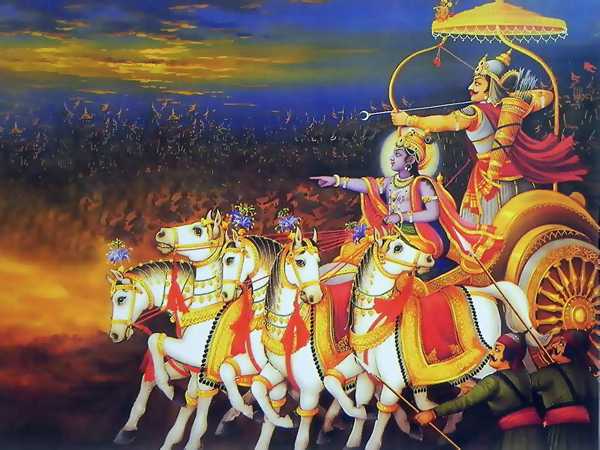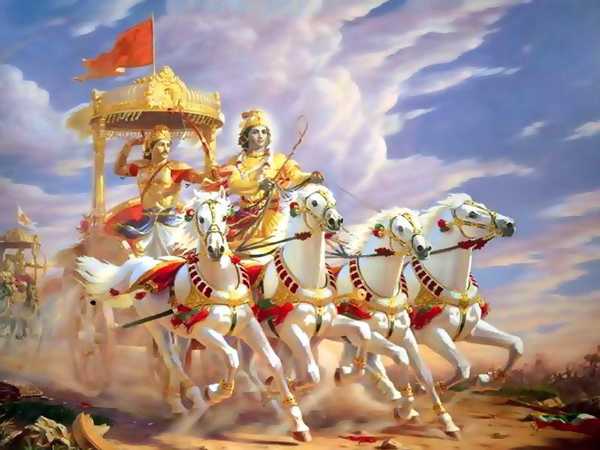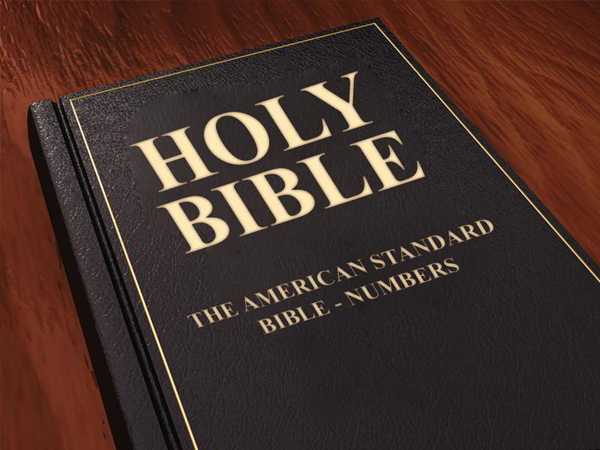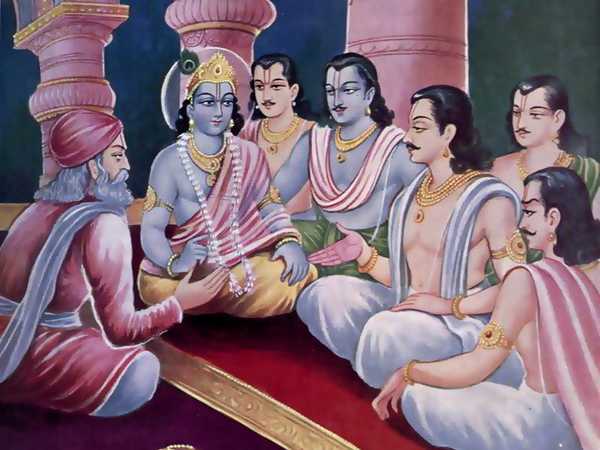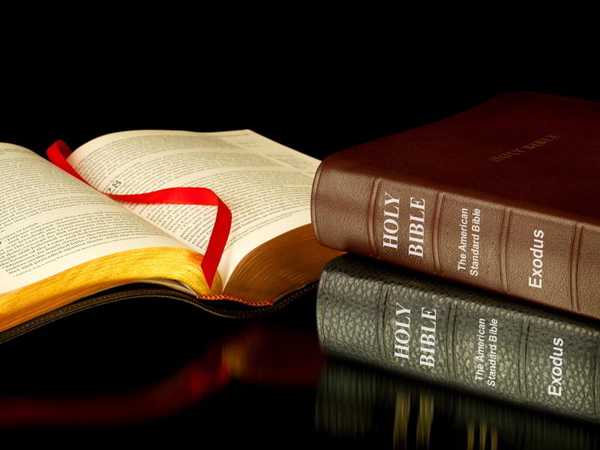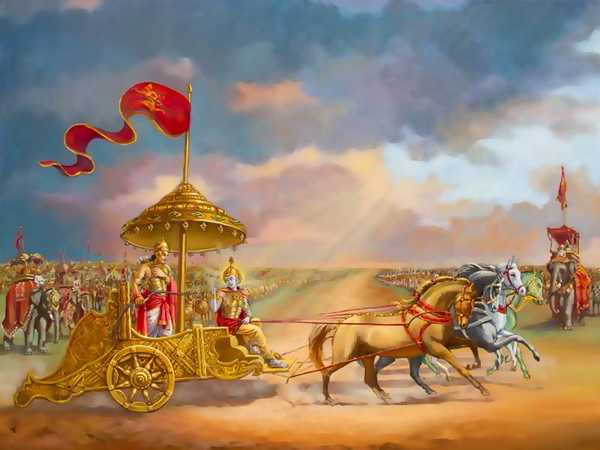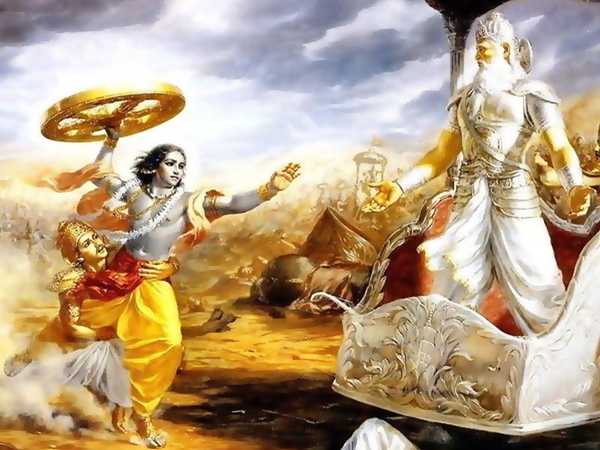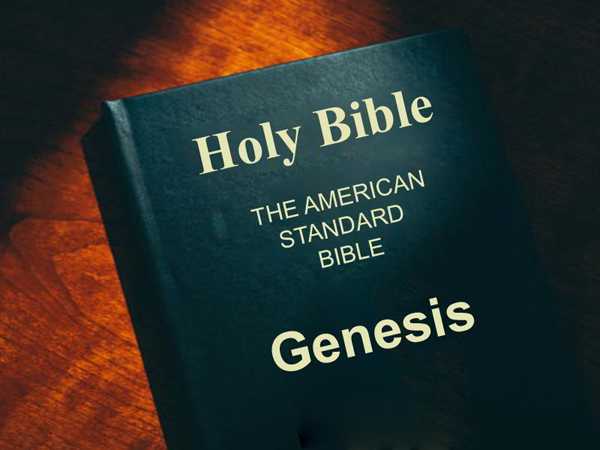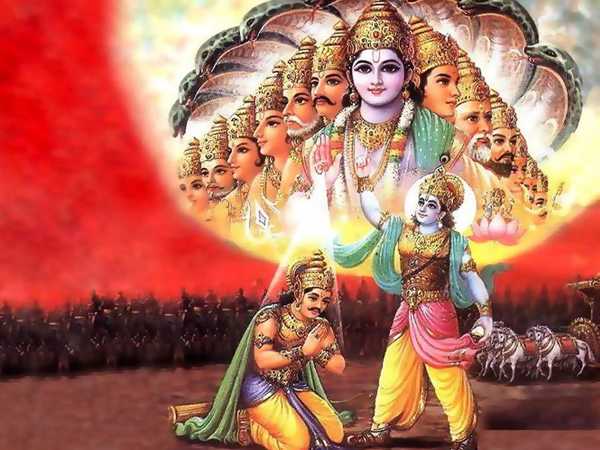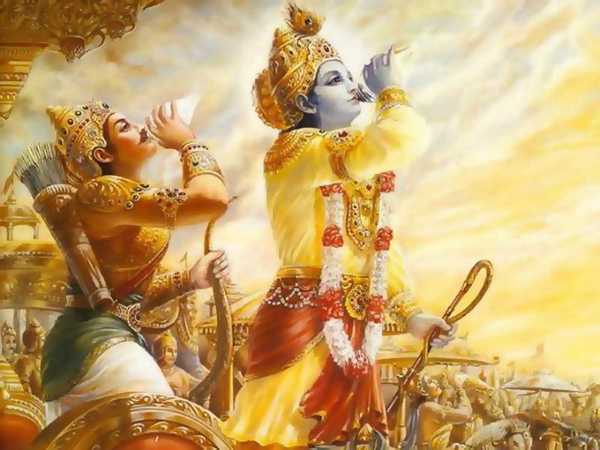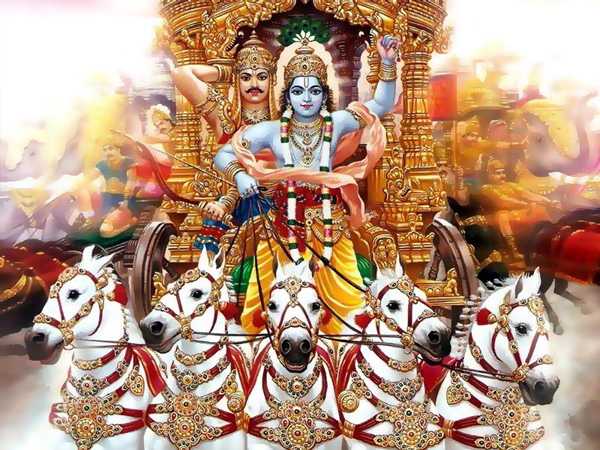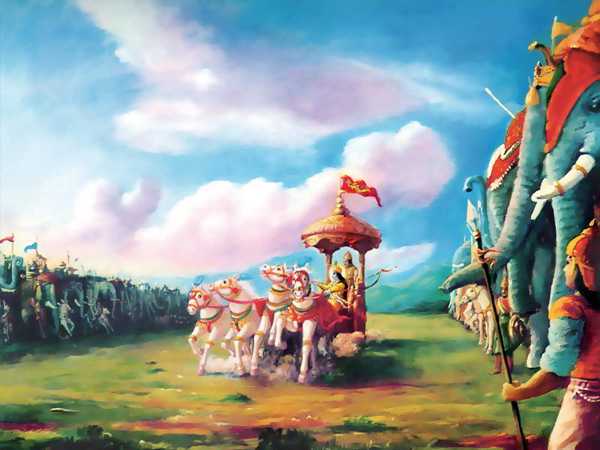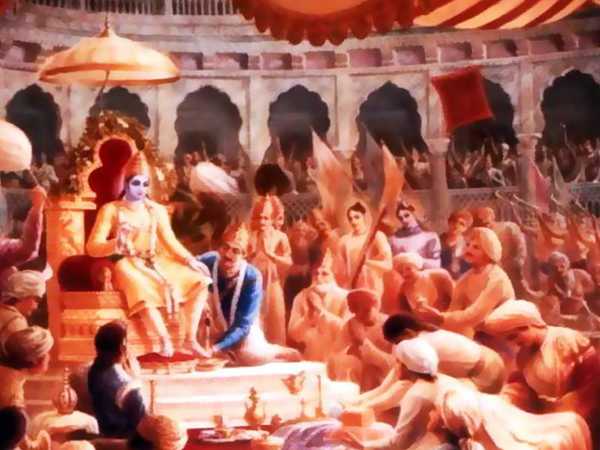Chapter 34
“Sanjaya said, ‘When that fierce battle, O monarch, was about tocommence, and when all the high-souled
Chapter 34
“Bhishma said, ‘One should always offer the most reverent worship untothe Brahmanas. They have Soma for their king, and they it is who conferhappiness and misery upon others.
Chapter 34
Vaisampayana said,–“then, O king, Yudhishthira, having approached andworshipped his grandfather and his preceptor, addressed Bhishma and Dronaand Kripa and the son of Drona and Duryyodhana and Vivingsati, andsaid,–‘Help me ye all in the mater of this sacrifice. This largetreasure that is here is yours. Consult ye with one another and guide meas ye desire.
Chapter 34
1 And Jehovah spake unto Moses, saying,
Chapter 34
“‘Duryodhana said, “After the fears of those throngs of the pitris, thegods, and the Rishis had thus been dispelled by that high-souled Deity,Brahman then offered his adorations, unto Sankara, and said these wordsfor the benefit of the universe,
Chapter 34
1 And Jehovah said unto Moses, Hew thee two tables of stone like unto the first: and I will write upon the tables the words that were on the first tables, which thou brakest.
Chapter 34
“Vaisampayana said, ‘Thus addressed by Yudhishthira Susarman wasoverwhelmed with shame and hung down his head. And liberated (fromslavery), he went to king Virata, and having saluted the monarch, tookhis departure.
Chapter 34
‘Sauti continued, ‘Garuda then said, ‘O Purandara, let there befriendship between thee and me as thou desirest.
Chapter 34
“Yudhishthira said, ‘After doing what acts does a man become liable toperform expiation? And what are those acts which he must do for beingfreed from sin? Tell me this, O grandsire.’
Chapter 34
1 And Dinah the daughter of Leah, whom she bare unto Jacob, went out to see the daughters of the land.
Chapter 34
“The Brahmana’s wife said, ‘This is incapable of being understood by aperson of little intelligence as also by one whose soul has not beencleansed.
Chapter 34
Vaisampayana said, “Thus addressed by Bhimasena, the high-souled kingAjatasatru firmly devoted to truth, mustering his patience, after a fewmoments said these words, ‘No doubt, O Bharata, all this is true. Icannot reproach thee for thy torturing me thus by piercing me with thyarrowy words.
Chapter 34
“Sanjaya said, ‘Hearing these words of the intelligent Yudhishthira, theson of Subhadra, O Bharata, urged his charioteer towards Drona’s array.
Chapter 340
“Bhishma said, ‘Thus hymned with names that were not known to others, theDivine Narayana having the universe for his form showed himself to theascetic Narada.
Chapter 341
Saunaka said, How is that illustrious god, viz., the puissant Narayanawho is fully conversant with the Vedas and their branches, at once thedoer and the enjoyer of sacrifices?
Chapter 342
Janamejaya said, “O holy one, it behoveth thee to tell me thesignificance of those diverse names uttering which the great Rishi Vyasawith his disciples hymned the praises of the illustrious slayer of Madhu.
Chapter 343
“Arjuna said, ‘How did Agni and Shoma, in days of yore, attain touniformity in respect of their original nature? This doubt has arisen inmy mind. Do thou dispel it, O slayer of Madhu!’
Chapter 344
Saunaka said, “O Sauti, excellent is this narrative which thou hastrecited. Verily, these ascetics, having heard it have all been filledwith wonder.
Chapter 345
“Nara and Narayana said, ‘Deserving art thou of the highest praise, andhighly favoured hast thou been, since thou hast beheld the puissantNarayana himself (in the form of Aniruddha).
Chapter 346
Vaisampayana said, “On one occasion, while residing in the retreat ofNara and Narayana, Narada the son of Pramesthi, having duly accomplishedthe rites and observances in honour of the deities, set himself toperform thereafter the rites in honour of the Pitris.
Chapter 347
Vaisampayana said, ‘Having heard these words of Nara and Narayana, theRishi Narada became filled with devotion towards the Supreme Being.
Chapter 348
Janamejaya said, ‘I have heard from thee the glory of the divine andSupreme Soul. I have heard also of the birth of the Supreme Deity in thehouse of Dharma, in the form of Nara and Narayana.
Chapter 349
Janamejaya said, “The illustrious Hari becomes gracious unto them thatare devoted to him with their whole souls. He accepts also all worshipthat is offered to Him agreeably to the ordinance.
Chapter 35
“Dhritarashtra said, ‘O thou of great intelligence, tell me again wordssuch as these, consistent with religion and profit. My thirst for hearingthem is not quenched. What thou sayst is charming!”
Chapter 35
“Arjuna said,–‘This discourse about the supreme mystery, calledAdhyatman, which thou hast uttered for my welfare, hath dispelled mydelusion.
Chapter 35
Janamejaya said, “On the eve of the great battle (between the Kurus andthe Pandus), the lord Rama, with Keshava’s leave, had gone away (fromDwaraka) accompanied by many of the Vrishnis.
Chapter 35
“Bhishma said, ‘O blessed king, Brahmana, by birth alone, becomes anobject of adoration with all creatures and are entitled, as guests, toeat the first portion of all cooked food.
Chapter 35
“Vaisampayana said,–On the last day of the sacrifice when the king wasto be sprinkled over with the sacred water, the great Brahmana Rishisever deserving of respectful treatment, along with the invited kings,entered together the inner enclosure of the sacrificial compound.
Chapter 35
1 And Jehovah spake unto Moses in the plains of Moab by the Jordan at Jericho, saying,
Chapter 35
“‘Duryodhana said, “Even thus did that illustrious Deity, that Grandsireof all the worlds, viz., Brahman, act as driver on that occasion and eventhus did Rudra become the warrior.
Chapter 35
1 And Moses assembled all the congregation of the children of Israel, and said unto them, These are the words which Jehovah hath commanded, that ye should do them.
Chapter 35
“Vaisampayana said, ‘When the king of the Matsyas, anxious of recoveringthe kine, had set out in pursuit of the Trigartas, Duryodhana with hiscounsellors invaded the dominions of Virata.
Chapter 35
“Saunaka said, ‘O son of Suta, thou hast told us the reason why thesnakes were cursed by their mother, and why Vinata also was cursed by herson. Thou hast also told us about the bestowal of boons, by theirhusband, on Kadru and Vinata. Thou hast likewise told us the names ofVinata’s sons. But thou hast not yet recited to us the names of thesnakes. We are anxious to hear the names of the principal ones.’
Chapter 35
“Yudhishthira said, ‘After doing what acts does a man become liable toperform expiation? And what are those acts which he must do for beingfreed from sin? Tell me this, O grandsire.’
Chapter 35
“Arjuna said, ‘It behoveth thee to expound Brahma to me,–that which isthe highest object of knowledge. Through thy favour, my mind is delightedwith these subtle disquisitions.’
Chapter 35
1 And God said unto Jacob, Arise, go up to Beth-el, and dwell there: and make there an altar unto God, who appeared unto thee when thou fleddest from the face of Esau thy brother.
Chapter 35
Bhima said, ‘O king, unsubstantial as thou art like froth, unstable likea fruit (falling when ripe), dependent on time, and mortal, havingentered into an agreement in respect of time, which is infinite andimmeasurable, quick like a shaft or flowing like a stream, and carryingeverything before it like death itself, how canst regard it as availableby thee?
Chapter 35
“Sanjaya said, ‘Beholding his army routed by Subhadra’s son ofimmeasurable energy, Duryodhana, filled with rage, himself proceededagainst the former.
Chapter 35
“Vaisampayana said, ‘King Dhritarashtra had never beheld his own sons.Obtaining eye-sight through the grace of the Rishi, he beheld, for thefirst time, O perpetuator of Kuru’s race, those children of his that werevery like his own self.
Chapter 350
Janamejaya said, “The Sankhya system, the Pancharatra scriptures, and theAranyaka-Vedas,–these different systems of knowledge or religion,–Oregenerate Rishi, are current in the world.
Chapter 351
Janamejaya said, “O regenerate one, are there many Purushas or is thereonly one? Who, in the universe, is the foremost of Purushas? What, again,is said to be the source of all things?”
Chapter 352
‘Brahma said,–‘Listen, O son, as to how that Purusha is indicated. He iseternal and immutable. He is undeteriorating and immeasurable. Hepervades all things.
Chapter 353
“Sauti said, ‘After Vaisampayana had explained to king Janamejaya in thisway the glory of Narayana, he began to discourse on another topic byreciting the question of Yudhishthira and the answer that Bhishma gave inthe presence of all the. Pandavas and the Rishis as also of Krishnahimself. Indeed, Vaisampayana began by saying what follows.[1924]
Chapter 354
“Bhishma said, ‘In an excellent town called by the name of Mahapadmawhich was situate on the southern side of the river Ganga, there lived,
Chapter 355
“The guest continued, ‘For all that, O Brahmana, I shall endeavour toinstruct thee duly. Listen to me as I recite to thee that which I haveheard from my preceptor.
Chapter 356
“The host replied, ‘I have heard these words of thine, that are soconsoling, with as much gratification as is felt by a person heavilyloaded when that load is taken off his head or shoulders.
Chapter 357
“Bhishma said, ‘Proceeding by many delightful forests and lakes andsacred waters, the Brahmana at last arrived at the retreat of a certainascetic.
Chapter 358
“Bhishma continued, ‘The Nagas of that city became exceedingly distressedwhen they saw that that Brahmana, devoted to the practice of penances,continued to reside in the forest, entirely abstaining all the while fromfood, in expectation of the arrival of the Naga chief.
Chapter 359
“Bhishma said, ‘Upon the expiry of the period of full fifteen days, theNaga chief (Padmanabha), having finished his task of dragging the car ofSurya and obtained the latter’s permission, came back to his own house.
Chapter 36
“Vidura said, ‘In this connection is cited the old story of the discoursebetween the son of Atri and the deities called Sadhyas is as heard by us.
Chapter 36
“Arjuna said, ‘Of those worshippers who, constantly devoted, adore thee,and those who (meditate) on thee as the Immutable and Unmanifest, who arebest acquainted with devotion.’
Chapter 36
“Sisupala said–‘O thou of the Kuru race, this one of the Vrishni racedoth not deserve royal worship as if he were a king, in the midst of allthese illustrious monarchs. O son of Pandu, this conduct of thine in thuswillingly worshipping him with eyes like lotus-petals is not worthy ofthe illustrious Pandavas.
Chapter 36
Vaishampayana said, “Baladeva (as already said), proceeded next to thetirtha called Udapana in the Sarasvati, that had formerly been theresidence, O king, of the illustrious (ascetic) Trita.
Chapter 36
“Bhishma said, ‘In this connection is cited the old history of thediscourse between Sakra and Samvara. Do thou listen to it, OYudhishthira. Once upon a time Sakra, assuming the guise of an asceticwith matted locks on his head and body smeared with ashes all over, rodeon an ugly car and repaired to the presence of the Asura Samvara.’
Chapter 36
1 And the heads of the fathers’ [houses] of the family of the children of Gilead, the son of Machir, the son of Manasseh, of the families of the sons of Joseph, came near, and spake before Moses, and before the princes, the heads of the fathers’ [houses] of the children of Israel:
Chapter 36
“Uttara said, ‘Firm as I am in the use of the bow, I would set out thisvery day in the track of the kine if only some one skilled in themanagement of horses becomes my charioteer.
Chapter 36
“‘Duryodhana said, “This one, O Karna, will act as thy driver, this rulerof the Madras, who is superior to Krishna, like Matali the driver of thechief of the celestials.
Chapter 36
1 And Bezalel and Oholiab shall work, and every wise-hearted man, in whom Jehovah hath put wisdom and understanding to know how to work all the work for the service of the sanctuary, according to all that Jehovah hath commanded.
Chapter 36
“Saunaka said, ‘O child, thou hast named many of the serpents gifted withgreat energy and incapable of being easily overcome. What did they doafter hearing of that curse?’
Chapter 36
“Vyasa said, ‘By penances, religious rites, and gifts, O Bharata, a manmay wash off his sins if he does not commit them again.
Chapter 36
“Brahma said, ‘That which is unmanifest, which is indistinct,all-pervading, everlasting, immutable, should be known to become the city(or mansion) of nine portals, possessed of three qualities, andconsisting of five ingredients.
Chapter 36
1 Now these are the generations of Esau (the same is Edom).
Chapter 36
Vaisampayana said, “Hearing those words of Bhima, Yudhishthira. the sonof Kunti–tiger among men and slayer of all foes–began to sigh heavily,and reflect in silence.
Chapter 36
“Dhritarashtra said, ‘While Arjuna’s son was thus grinding, by means ofhis straight arrows, our foremost bowmen, what warriors of my armyendeavoured to check him?’
Chapter 36
“Janamejaya said, ‘Having seen his sons and grandsons with all theirfriends and followers, what, indeed, did that ruler of men, viz.,Dhritarashtra, and king Yudhishthira also, do?’
Chapter 360
“The Naga said, ‘O thou of sweet smiles, for whom hast thou taken thatBrahmana? Is he really a human being or is he some deity that has comehither in the disguise of a Brahmana?
Chapter 361
“Bhishma said, ‘Having said these words unto his dear spouse, the chiefof the Nagas proceeded to that place where the Brahmana was sitting inexpectation of an interview with him.
Chapter 362
“The Brahmana said, ‘Thou goest away for dragging the one-wheeled car ofVivaswat according to thy turn. It behoveth thee to describe to meanything wonderful that thou mayst have noticed in those regions throughwhich thou sojournest!’
Chapter 363
“Surya said, ‘This Being is not the god of fire, he is not an Asura. Noris he a Naga. He is a Brahmana who has attained to heaven in consequenceof his having been crowned with success in the observance of the vowcalled Unccha.
Chapter 364
“The Brahmana said, ‘Without doubt, this is very wonderful, O Naga, Ihave been highly gratified by listening to thee.
Chapter 37
“Vidura said, ‘O son of Vichitravirya, Manu, the son of the Self-created,hath, O king, spoken of the following seven and ten kinds of men, asthose that strike empty space with their fists, or seek to bend thevapoury bow of Indra in the sky, or desire to catch the intangible raysof the sun.
Chapter 37
“The Holy One said, ‘This body, O son of Kunti, is called Kshetra. Himwho knoweth it, the learned call Kshetrajna.[260] Know me, O Bharata, tobe Kshetras.
Chapter 37
“Vaisampayana said,–Then the king Yudhishthira hastily ran afterSisupala and spoke unto him sweetly and in a conciliating tone thefollowing words,–‘O lord of earth, what thou hast said is scarcelyproper for thee.
Chapter 37
Vaishampayana said, “Then Valadeva, O king, proceeded to Vinasana wherethe Sarasvati hath become invisible in consequence of her contempt forSudras and Abhiras.
Chapter 37
“Yudhishthira said, ‘Which amongst these three persons, O grandsire,should be regarded as the best for making gifts unto, viz., one who is athorough stranger, or one who is living with and who has been known tothe giver for a long time, or one who presents himself before the giver,coming from a long distance?’
Chapter 37
“Vaisampayana said, ‘Thus despatched by her elder brother, the far-fameddaughter of king Matsya, adorned with a golden necklace, ever obedient
Chapter 37
“Sanjaya said, ‘Beholding the mighty Karna take up his station fromdesire of battle, the Kauravas, filled with delight, uttered loud shoutsfrom every side.
Chapter 37
1 And Bezalel made the ark of acacia wood: two cubits and a half was the length of it, and a cubit and a half the breadth of it, and a cubit and a half the height of it:
Chapter 37
“Sauti said, ‘That best of snakes, viz., Vasuki, hearing the curse of hismother, reflected how to render it abortive. He held a consultation withall his brothers, Airavata and others, intent upon doing what they deemedbest for themselves.’
Chapter 37
“Yudhishthira said, ‘Tell me, O grandfather, what food is clean and whatunclean, what gift is praiseworthy, and who should be considereddeserving and who undeserving (of gifts).’
Chapter 37
“Brahman said, ‘Ye best of beings, I shall now declare to you accuratelywhat (the quality of) Passion is.
Chapter 37
1 And Jacob dwelt in the land of his father’s sojournings, in the land of Canaan.
Chapter 37
Vaisampayana said, “After some time, Yudhishthira the just, rememberingthe command of the Muni (Vyasa) and calling unto himself that bull amongmen–Arjuna–possessed of great wisdom, addressed him in private.
Chapter 37
“Dhritarashtra said, ‘My heart, O Sanjaya, is agitated with differentemotions, viz., shame and gratification, upon hearing that Subhadra’s sonsingly held in cheek the whole army of my son. O son of Gavalgana, ten meeverything once more in detail about the encounter of youthful Abhimanyu,which seems to have been pretty like Skanda’s encounter with the Asurahost.’
Chapter 37
“Vaisampayana said, ‘After two years had elapsed from the date of thereturn of the Pandavas (from the retreat of their sire), the celestialRishi, Narada, O king, came to Yudhishthira.
Chapter 38
“Vidura said, ‘The heart of a young man, when an aged and venerableperson cometh to his house (as a guest), soareth aloft. By advancingforward and saluting him, he getteth it back.
Chapter 38
“The Holy One said, ‘I will again declare (to thee) that supernal scienceof sciences, that excellent science, knowing which all the munis haveattained to the highest perfection from (the fetters of) this body.
Chapter 38
“Vaisampayana said,–The mighty Bhishma ceased, having said this.Sahadeva then answered (Sisupala) in words of grave import, saying,–‘Ifamongst ye there be any king that cannot bear to see Kesava of dark hue,the slayer of Kesi, the possessor of immeasurable energy, worshipped byme, this my foot is placed on the heads of all mighty ones (like him).
Chapter 38
Janamejaya said, “Why was that tirtha called Sapta-Saraswat? Who was theascetic Mankanaka? How did that adorable one become crowned with success?
Chapter 38
“Yudhishthira said, ‘O best of the Bharatas, I wish to hear theediscourse on the disposition of women. W omen are said to be the root ofall evil. They are all regarded as exceedingly frail.’
Chapter 38
‘Vaisampayana said, ‘Having issued forth from the city, the dauntless sonof Virata addressed his charioteer, saying, ‘Proceed whither the Kurusare.
Chapter 38
“Sanjaya said ‘After Karna, gladdening thy army, had set out for battle,he spoke unto every Pandava soldier that he met with, even these words:”
Chapter 38
1 And he made the altar of burnt-offering of acacia wood: five cubits was the length thereof, and five cubits the breadth thereof, foursquare; and three cubits the height thereof.
Chapter 38
“Sauti said, ‘Hearing the respective speeches of all the snakes, andhearing also the words of Vasuki, Elapatra began to address them, saying,’That sacrifice is not one that can be prevented.
Chapter 38
“Yudhishthira said, ‘O holy and great ascetic, I desire to hear in detailwhat the duties of kings are and what the duties, in full, of all thefour orders. I desire also to hear,
Chapter 38
“Brahmana said, ‘I shall, after this discourse to you on that excellentquality which is the third (in the order of our enumeration).
Chapter 38
1 And it came to pass at that time, that Judah went down from his brethren, and turned in to a certain Adullamite, whose name was Hirah.
Chapter 38
Janemejaya said, “O illustrious one, I desire to hear in detail thehistory of the acquisition of weapons by Arjuna of spotless deeds. O tellme how that tiger among men, Dhananjaya, of mighty arms and possessed ofgreat energy, entered that solitary forest without fear.
Chapter 38
“Sanjaya said, ‘Then the intelligent Abhimanyu, with limbs mangled witharrows, smilingly addressed his foe, Duhsasana, stationed before himsaying,
Chapter 38
“Yudhishthira said, ‘When such a fate overtook that high-souled monarchwho was engaged in austere penances, notwithstanding the fact of hishaving such kinsmen as ourselves all alive, it seems to me, O regenerateone, that the end of human beings is difficult to guess.


